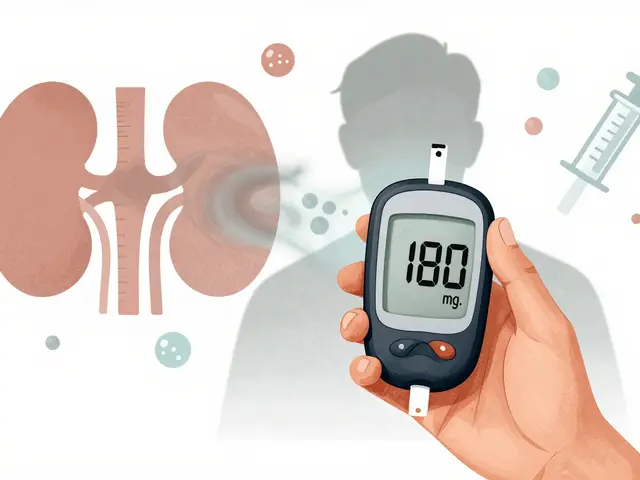Imatinib (Gleevec): what it does and how to use it safely
Imatinib is a targeted cancer drug used mainly for chronic myeloid leukemia (CML) and gastrointestinal stromal tumors (GIST). It blocks specific enzymes called tyrosine kinases (BCR-ABL, KIT, PDGFR) that make cancer cells grow. That focused action makes it very effective for the right patients, but it still needs careful handling and monitoring.
Before starting imatinib you’ll need a clear diagnosis and a prescription. Doctors usually order blood tests and sometimes genetic tests to confirm the targetable mutation. Don’t switch or stop the drug without talking to your oncologist — sudden changes can cause disease flare-ups.
Typical dosing and what to watch for
Common adult doses: 400 mg once daily for most CML cases and many GIST patients. Some GIST patients with specific KIT mutations may need 800 mg daily. Doses vary by disease stage and patient response. Take imatinib with a meal and a glass of water to reduce stomach upset.
Common side effects you’ll likely see: nausea, diarrhea, fluid retention (swelling, especially around the ankles), muscle cramps, fatigue, and skin rash. These are usually manageable with simple remedies or dose adjustments. Serious but less common problems include low blood counts, liver injury, and heart issues. Report high fever, unusual bleeding, jaundice (yellow skin/eyes), sudden shortness of breath, or chest pain right away.
Safety, interactions, and monitoring
Imatinib is processed by liver enzymes (CYP3A4). Strong inhibitors (like certain antifungals or some antibiotics) can raise imatinib levels, increasing side effect risk. Inducers (like rifampicin or St. John’s wort) can lower levels and reduce effectiveness. Grapefruit and grapefruit juice can also affect imatinib—avoid them. If you take blood thinners, diabetes drugs, or other cancer meds, tell your doctor; dose changes or extra monitoring may be needed.
Typical monitoring: complete blood count (CBC) often weekly at first, then every few weeks, then monthly once stable. Liver tests (AST/ALT) are checked regularly. Blood pressure and weight (for fluid retention) are also tracked. Pregnancy: imatinib can harm a fetus. Use effective contraception and discuss family planning with your doctor.
Some patients develop resistance to imatinib over time due to mutations in the target protein (for example T315I). If that happens, doctors can switch to other targeted drugs (dasatinib, nilotinib, bosutinib, ponatinib) or consider transplant in certain cases. Genetic testing of the cancer helps choose the next drug.
Buying advice: imatinib is prescription-only. Use licensed pharmacies and avoid unverified online sellers. Generics exist and may be cheaper; ask your pharmacist about patient assistance programs if cost is an issue. Always check packaging, expiration, and approval status before accepting medications.
If you want a quick checklist: get the right diagnosis, follow the exact dose, report serious symptoms fast, avoid strong drug interactions, and keep scheduled blood tests. Talk with your care team if side effects interfere with daily life—small changes often fix things.

- Jun 12, 2023
- Posted by Cillian Osterfield
Understanding the mechanism of action of Imatinib
As a blogger, I've been researching the mechanism of action of Imatinib, a groundbreaking drug used to treat certain types of cancer. Imatinib works by specifically targeting and inhibiting the activity of abnormal proteins, known as tyrosine kinases, which are responsible for uncontrolled cell growth in cancers like chronic myeloid leukemia. By blocking these proteins, Imatinib is able to effectively stop the progression of cancerous cells. This targeted therapy has revolutionized cancer treatment, resulting in better outcomes and fewer side effects for patients. Understanding the mechanism of action of Imatinib helps us appreciate the advancements in cancer therapy and the potential for developing more targeted treatments in the future.
Categories
- Health and Wellness (72)
- Medications (68)
- Health and Medicine (28)
- Pharmacy Services (12)
- Mental Health (9)
- Health and Career (2)
- Medical Research (2)
- Business and Finance (2)
- Health Information (2)
Latest Posts
©2026 heydoctor.su. All rights reserved





